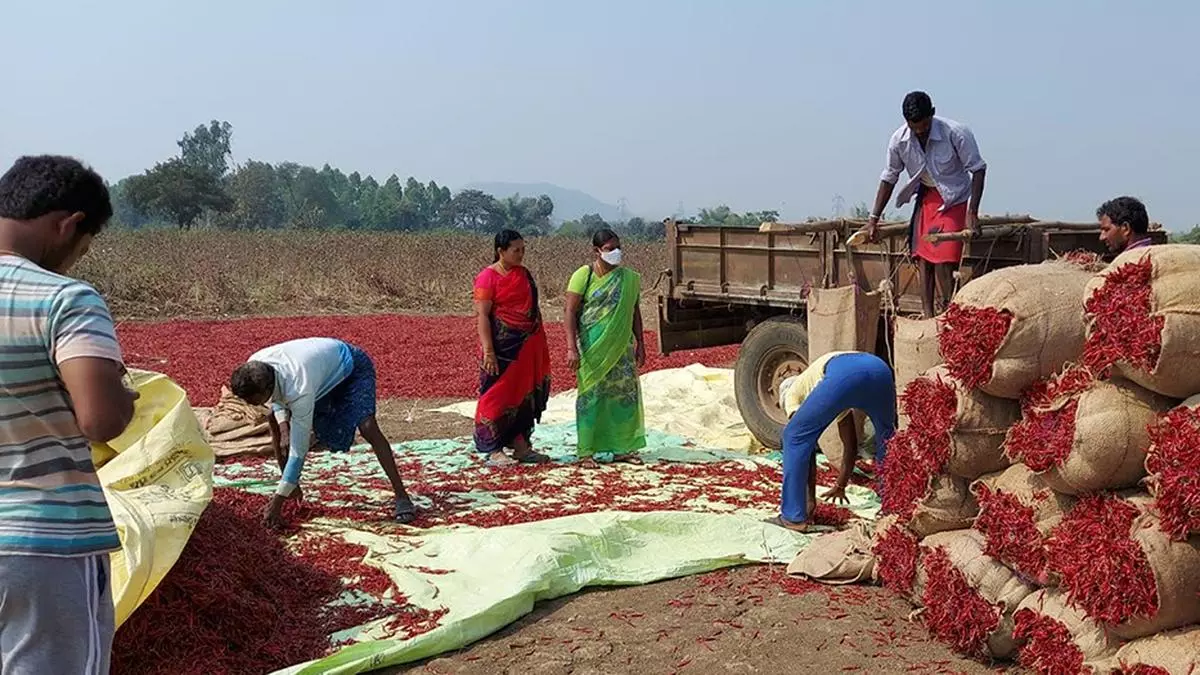Sustainability of farmer producer organisations: Integrating social enterprises in the value chain
Farmer Producer Organisations (FPOs) are pivotal in empowering farmers and uplifting rural economies. By pooling resources and creating collective bargaining power, FPOs address systemic inequities that disadvantage smallholder farmers. However, the success of these collectives depend on more than their mere existence—it hinges on sustainable strategies that ensure they deliver consistent value to their members. A promising solution lies in linking FPOs with social enterprises to create a market-linked, scalable, and farmer-centric ecosystem. This approach addresses FPO sustainability challenges while driving rural prosperity.
FPOs as instruments for empowerment
FPOs enable farmers to overcome the limitations of fragmented and individual operations, offering better market leverage, resource access, and collective risk-sharing. However, their ultimate value lies in empowering individuals. FPOs are transitional mechanisms, addressing immediate gaps but evolving to support individual growth and independence. Their success judged by the extent to which they empower individual farmers to participate equitably in the value chain.
Challenges FPOs face
Despite their potential, FPOs in India have faced significant challenges in achieving their objectives. A lack of trust and transparent governance often deter farmer participation. Farmers often hesitate to join FPOs due to fears of elite capture, where influential members dominate decision-making for personal gain. High initial costs and uncertain benefits further dissuade farmers. Social factors, such as past negative experiences with collectives and caste or class divisions, also hinder collaboration. Moreover, the absence of an anchor figure to drive the establishment and functioning of FPOs often results in stagnation.
Perhaps, the most pressing challenge is the lack of dependable market linkages, making it harder to navigate customer preferences and articulate value propositions. Without dependable market linkages, even well-functioning FPOs face sustainability issues.
Linking FPOs with social enterprises
Integrating FPOs with social enterprises offer a sustainable solution. Social enterprises, driven by a dual focus on financial viability and social impact, can provide the expertise, networks, and market access FPOs lack. In return, FPOs offer reliable supply chains and a direct connection to rural producers, aligning with the mission of social enterprises to create meaningful impact.
For example, social enterprises can train FPO members to cultivate high-demand crops and set up processing units for value addition, while FPOs ensure steady material supply. This symbiotic relationship builds robust value chains that benefit both parties and driving long-term sustainability.
Collaborations with social enterprises can also strengthen FPO governance. Transparent and democratic processes, facilitated by social enterprises, build member trust and engagement. Shared commitments, such as group-based input support, further enhance collective responsibility.
A practical model for implementation
The success of this integration depends on identifying the right partners, based on shared objectives and complementary strengths. Social enterprises can train FPO members in market dynamics, business planning, and operational management to help them with the skills needed to succeed in competitive markets.
Facilitating direct connections with buyers through social enterprise networks ensure stable demand for FPO products. Technology can enhance these linkages through market intelligence, demand forecasting, and transaction transparency.
When it comes to financial sustainability, moving away from subsidy-driven models, FPOs should focus on creating self-reliant income streams. Earning-based models offer predictability and empower farmers to control outcomes.
A notable example is the Institute of Rural Management Anand (IRMA)’s social enterprise incubator, iSEED. By including partnerships between FPOs and social enterprises, iSEED has helped FPOs identify viable business opportunities, access markets, and create scalable value chains that benefit both parties.
Overcoming barriers to adoption
Implementing this model requires addressing key barriers. Inclusive participation, regular communication, and building trust among farmers through transparent operations and visible benefits is essential. Programmes must engage marginalised groups and address caste or class divisions to foster representative FPOs. Anchor institutions like IRMA, NABARD, and other rural development organisations can provide the expertise and resources necessary for scaling these efforts.
In conclusion, integrating FPOs with social enterprises offers a sustainable pathway to rural prosperity. This model addresses systemic challenges while creating value for individual farmers. The ultimate goal is to ensure that FPOs not only survive but thrive, empowering farmers to achieve equitable participation in value chains. The success of this model lies in its scalability. The programme can create a nationwide network of thriving FPOs by replicating successful partnerships across regions and sectors. This, in turn, contributes to broader goals of rural development, poverty alleviation, and economic inclusion.
Pratik Modi is Dean at the School of Management, BML Munjal University, and Rakesh Arrawatia, Professor of Finance, Institute of Rural Management Anand
